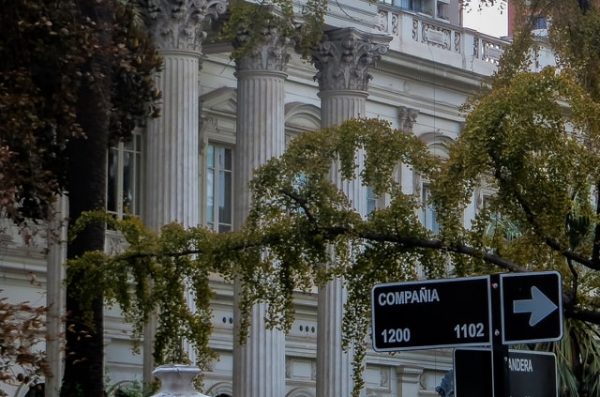Biological Sciences
Introduction
There are an incredible array of study abroad programs available for students in the biological sciences major. This is a unique opportunity for students to gain invaluable experience that will benefit them in so many ways.
- It will expose students to different cultures, ways of thinking, and approaches to scientific challenges.
- It will enable students to gather an international perspective on scientific study, as well as take courses that may not be available at UIC.
- A study abroad experience can be easily incorporated into the biological sciences curriculum.
- It enhances your portfolio of experience with a unique hands-on approach to learning in the biological sciences discipline.
- It is a tremendous opportunity for self growth. It will force you outside of your comfort zone and you will learn so much about yourself.
Intro

“If you look at successful biologists, you’ll see that they collaborate around the world. A study abroad experience exposes students to how biologists network and share technologies, ideas, and cultures. This experience can be empowering and transformative, both professionally and personally”
| Professor and Associate Department Head of Biological Sciences
Intro
When is recommended time for Bio Science Majors to study abroad?
Traditionally, it is most common for students to study abroad in their second or third year (Fall, Spring, or Summer), but we would support students studying abroad in any term.
Often, Summer terms are a great option for students studying in the sciences. We’d encourage students to discuss with a BIOS advisor what time would be best to study abroad based upon their specific degree progress and plan.
Intro
Here are some tips and recommendations from the Department of Biological Sciences to keep in mind as you plan to study abroad.
- Any major requirement for the Biological Sciences major can be fulfilled by studying abroad. However, it’s easier to find courses to count toward their elective requirements for their major vs. the core biology sequence
- Any major elective can be fulfilled through studying abroad
- Students should consult their LAS general advisor for recommendations in this category
- Students should consult their LAS general advisor for recommendations in this category
- Are there any caps on how many credit hours a student can take abroad for this major?
- 20 hours
- Students are encouraged to complete collateral coursework (MATH, CHEM, PHYS) at UIC, as well as the introductory BIOS coursework (BIOS 110 and 120) and thus not taken abroad
meet your academic advisor
It is highly recommended that you speak with your academic advisor to discuss your plans to study abroad.
How to make an appointment with the Department of Biological Sciences academic advisor:
- Make an appointment via iAdvise.
- New to iAdvise? Log in to my.UIC.edu and visit the Advising Tab. Click on iAdvise and you will go to your Success Network. Search for “Biological Sciences ” in the search bar to find advising and your advisor to make your appointment!
- Have you used iAdvise before? Use this link to go directly to the page to request an appointment with an advisor.
- Contact Sharon Hayes, Director of Undergraduate Programs and Academic Support Staff to make an appointment directly.
Any questions? Please contact the office directly at: biosciadvising@uic.edu
Questions to ask your academic advisor:
- What is the best semester/term for you to study abroad?
- How many elective credits do you have left to complete your major?
- Which of your remaining degree requirements could you complete abroad? Are there any that you cannot take abroad?
Meet your study abroad advisor
Our advisors at the Study Abroad Office are excited to meet with you to discuss your interest in and goals for studying abroad. You can meet our team of advisors and learn about the programs they advise for here.
First Step
First Step Info Sessions are required for all study abroad applicants as a starting point for the application process. The presentation reviews how to select a program that aligns with your academic, personal, and professional goals, the application and course approval processes, financial aid policies, and scholarship opportunities. Learn more about our First Step sessions here.
Peer Advisor and General Study Abroad Advising
Once you’ve watched or attended a First Step session, you may still have some general questions or be unsure of what program you want to participate on. No worries, our Peer Advisor or Study Abroad Advisor can assist you! Our Peer Advisor is typically a current student who recently returned from studying abroad, so they can be an excellent resource in answering a lot of your initial questions and telling you about their study abroad experience. Additionally, our Study Abroad Advisor can help you reflect on your interests and goals to begin identifying potential programs of interest. Contact them at sao@uic.edu or make an appointment via iAdvise*.
Study Abroad Program Advising
If you know the region you are interested in or have identified a program of interest you can make an appointment with the assigned Study Abroad Office advisor to discuss the program and application process in detail. Every program has its own page on our website which lists the SAO advisor. Simply e-mail sao@uic.edu to request an appointment or schedule an appointment in iAdvise*.
Questions to ask your Study Abroad Advisor
- What are the eligibility requirements for the program(s) in which you are interested?
- What is the application deadline for the program(s) in which you are interested?
- What does the application process entail and is admission to the program competitive?
- What coursework is offered?
- What co-curricular experiences (ex: internships, research, social-cultural excursions/field trips etc.) are included?
- What is the cost of the program; what is and is not included?
- Review our funding resources here and discuss any questions you have.
- Discuss any personal matters or concerns you may have so your advisor can share resources and help you plan for your time abroad. As a start, explore our Navigating Your Identities Abroad page for resources related to different underrepresented identities and the abroad experience.
*To make an appointment with an SAO staff member in iAdvise, log on to my.UIC.edu and visit the Advising Tab. Click on iAdvise and you will go to your Success Network. Search for “Study Abroad” in the search bar to make your appointment or scroll down to our advisor profiles to schedule an appointment directly.
Funding
Studying abroad does not have to cost more than a typical semester at UIC. In addition, there are many resources available to help students afford study abroad. Check out some advice below and explore all of our funding resources in this section of our website.
Review Your Program’s Cost Sheet
Every study abroad program has its own webpage on our site. Use our program search to find a program of interest. On the Finances tab of each program page you will find a cost sheet which provides information on the billable and non-billable expenses associated with a program. Billable expenses are those expenses charged to your UIC student account while non-billable expenses are items you need to budget for but that are not charged to your student account, such as airfare, passport etc. Make sure to review your program’s cost sheet to help you understand the total estimated cost of studying abroad.
Explore Funding Resources
There are many resources available to you to help make funding study abroad a reality.
- Meet with a representative of the Financial Aid Office to understand what federal financial aid you may have available to use towards studying abroad. More information is available here.
- Apply for study abroad scholarships. There are numerous scholarships specific to studying abroad and UIC students are often competitive applicants. Check out UIC specific scholarships as well as scholarships offered by our program partners and nationally-competitive scholarships here.
- Tap your networks and leverage community-based funding. Studying abroad is an exciting academic opportunity in which many people in your networks would likely be happy to help support you. Find some tips for effective community-based funding here.
Major-Specific Scholarships
Although the College of Urban Planning and Public Affairs does not currently have any scholarships specific to study abroad, they have a number of scholarships available to their students. You are encouraged to apply for any scholarships for which you are eligible. If you receive a scholarship for a semester at UIC, this may enable you to reallocate other aid and funds towards your study abroad program. For a full list of CUPPA scholarships please visit their website.
Gilman International Scholarship
The U.S. Department of State’s Benjamin A. Gilman International Scholarship Program enables students of limited financial means to study or intern abroad, providing them with skills critical to our national security and economic prosperity.
Students must be Pell-eligible and intending to participate on a study abroad program that is at least 21 days in length. Gilman favors diversity in many forms, including racial and ethnic minorities, first-generation college students, LGBTQIA+ students, students with disabilities, students pursuing majors in disciplines that are traditionally underrepresented in study abroad, and students interested in studying abroad in countries that are traditionally underrepresented in study abroad.
UIC students have been successful at earning the Gilman scholarship and SAO staff are available to help you on your application. Please visit Gilman’s website for more information and contact sao@uic.edu if you have questions or are interested in applying.
Fund for Education Abroad
The mission of the Fund for Education Abroad (FEA) is to provide scholarships and ongoing support to students who are underrepresented among the U.S. study abroad population. FEA administers several scholarships for students from diverse backgrounds and only requires a single application. Find out more here!



















